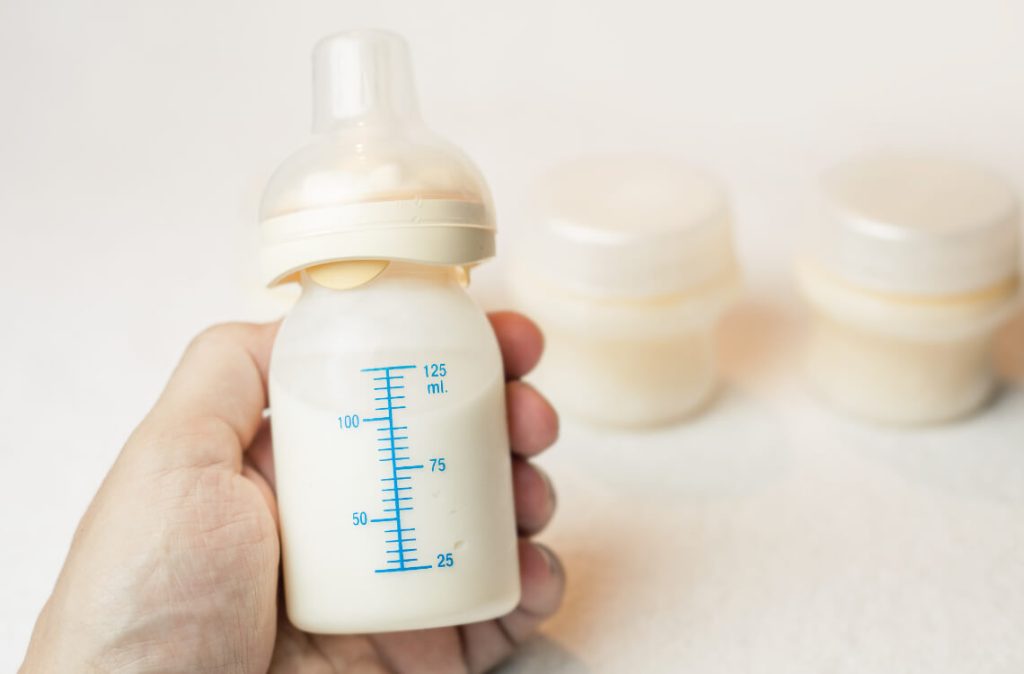Have you ever wondered why your breast milk smells or tastes a certain way, especially after eating something unusual? Most of the time, it’s nothing to be concerned about and is completely normal for any mother.
One thing is certain: human milk can taste and smell different depending on the individual. Because of that distinct odour, babies can recognise it and latch on. Surprisingly, your amniotic fluid (which protected and nourished your baby during pregnancy) tasted similar to your milk.
Despite its uniqueness, certain factors such as diet, medication, and storage can all affect the taste, smell, and appearance of breast milk. Let’s take a look at what they are:
Food
Is it accurate to say that what you eat is what you breastfeed your baby? In some ways, yes. It’s true because certain foods can alter the taste and smell of your breast milk, as evidenced by the studies listed below.
- The garlic experiment on nursing mothers revealed that the pungent taste influenced breast milk flavour and baby suckling behaviour.
- Nursing mothers were given a banana, caraway, anise, and menthol-flavoured capsules, and they discovered trace amounts of the flavour in their breast milk.
- Piperine from pepper-containing foods transfers into the mother’s milk within one hour and is delivered through nursing.
These are some of the foods that have been found to permeate human milk and alter its flavour. Other foods may be doing the same thing, and you can tell if there is a difference in how your baby nurses after eating something new. You don’t be too concerned about this as long as what you’re eating doesn’t bother your baby in any way. For example, making them bloated or gassy, or causing any other problems.
Medications
Almost any drug present in your blood will transfer to some extent into your breast milk. Most medications, however, do so at low levels and pose no real danger to most infants. These include an antihistamine (anti-allergy) and decongestant medications, as well as narcotics and diuretics. Certain medications can also affect the taste of human milk.
If you start a new medication and notice your baby is refusing to breastfeed, this could be the cause. That being said, be extra cautious when taking medication while breastfeeding, just as you would be during pregnancy because exposure to these medicines at such a young age can be harmful to the baby. Remember to always consult your doctor before taking any medication.
Storage Techniques
Breastfeeding comes with a lot of essentials and what you use to store your breast milk can influence its smell, taste, and appearance. Whether you use a bottle or plastic milk storage, and whether you keep the milk in the fridge or freezer, all of these methods will have an impact on your breast milk.
You may have noticed that when breast milk is left at room temperature or in the refrigerator for an extended time, it begins to separate into layers. This does not imply that it has gone bad; rather, the cream is rising to the top. Simply rotate or swirl the container gently to mix the milk, and you’re ready to feed your baby!
Freezing and Thawing Breast Milk
There is a specific way to freeze and thaw breast milk to avoid spoilage. For example, if you know you won’t be using the breast milk you just pumped in three days or less, keep it in the freezer. If you left it out or in the fridge before putting it in the freezer, the smell, taste, and appearance will most likely have changed.
Then, when the time comes to defrost the breast milk, you may refer to the general guidelines from Stanford Children’s Health:
- Use the oldest milk first, unless freshly expressed milk is recommended.
- Thaw breastmilk in the collection container by placing it in the refrigerator for several hours or overnight.
You may notice that thawed breast milk has a soapy odour. Don’t be alarmed; this is simply lipase activity. Although it is not harmful, your baby may dislike the taste.
Body Care Products
This is more of an external factor. Sometimes, you may apply lotions, creams, ointments, or perfumes to your body and breasts. As your baby nurses, those products may alter the taste of your breast milk.
Though it is not recommended to use chemical products near your breast, especially if you are breastfeeding, because they may contain ingredients that are harmful to your baby. Make sure to wash your breasts thoroughly before breastfeeding your baby if you have used any body care products on or near them.
Taste Your Breast Milk Before Nursing
There’s no harm in tasting your own breast milk if you’re unsure or concerned about the flavour. Just give it a try before giving it to your baby so you know if your breast milk tastes, smells, and looks good. Don’t be too concerned about tasting it because, after all, it’s just milk and it’s yours.
